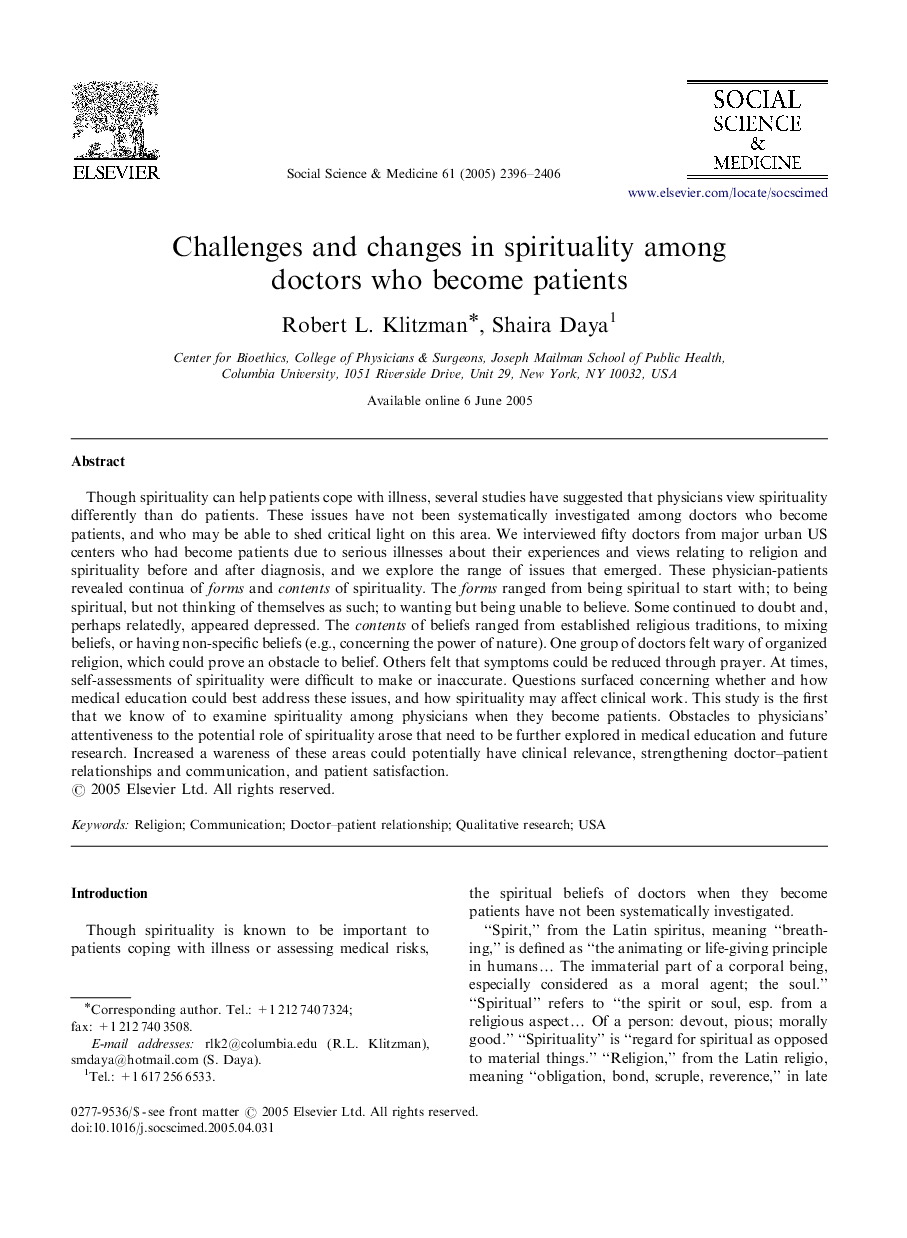| Article ID | Journal | Published Year | Pages | File Type |
|---|---|---|---|---|
| 955196 | Social Science & Medicine | 2005 | 11 Pages |
Though spirituality can help patients cope with illness, several studies have suggested that physicians view spirituality differently than do patients. These issues have not been systematically investigated among doctors who become patients, and who may be able to shed critical light on this area. We interviewed fifty doctors from major urban US centers who had become patients due to serious illnesses about their experiences and views relating to religion and spirituality before and after diagnosis, and we explore the range of issues that emerged. These physician-patients revealed continua of forms and contents of spirituality. The forms ranged from being spiritual to start with; to being spiritual, but not thinking of themselves as such; to wanting but being unable to believe. Some continued to doubt and, perhaps relatedly, appeared depressed. The contents of beliefs ranged from established religious traditions, to mixing beliefs, or having non-specific beliefs (e.g., concerning the power of nature). One group of doctors felt wary of organized religion, which could prove an obstacle to belief. Others felt that symptoms could be reduced through prayer. At times, self-assessments of spirituality were difficult to make or inaccurate. Questions surfaced concerning whether and how medical education could best address these issues, and how spirituality may affect clinical work. This study is the first that we know of to examine spirituality among physicians when they become patients. Obstacles to physicians’ attentiveness to the potential role of spirituality arose that need to be further explored in medical education and future research. Increased a wareness of these areas could potentially have clinical relevance, strengthening doctor–patient relationships and communication, and patient satisfaction.
